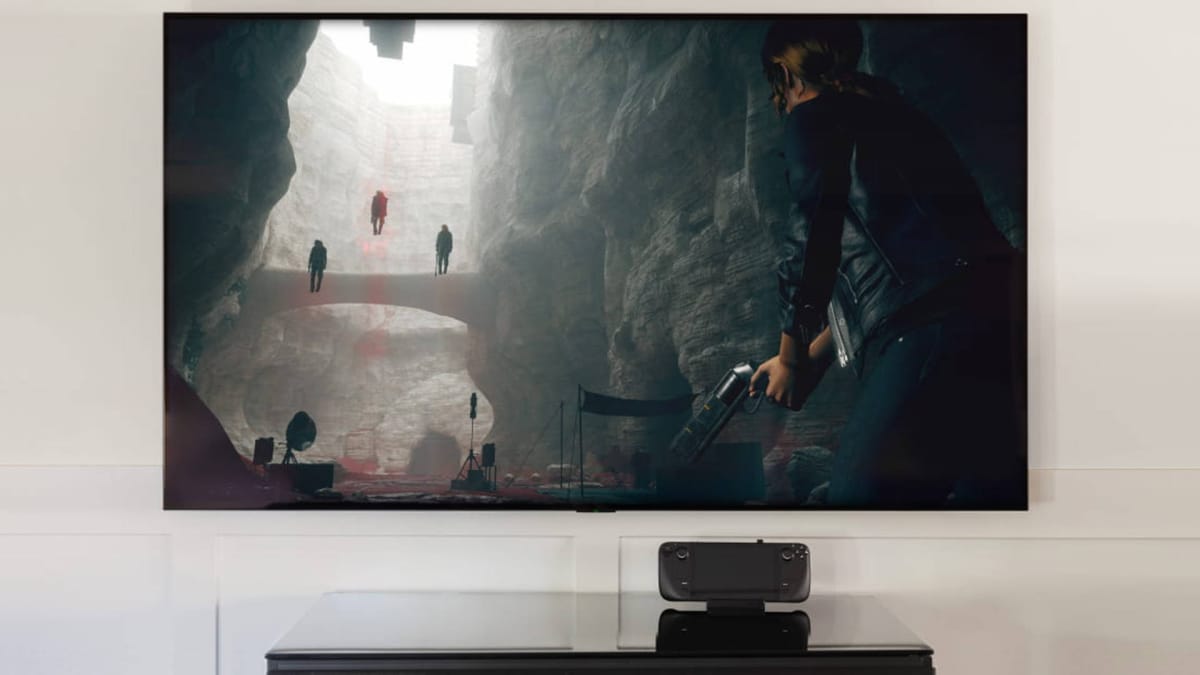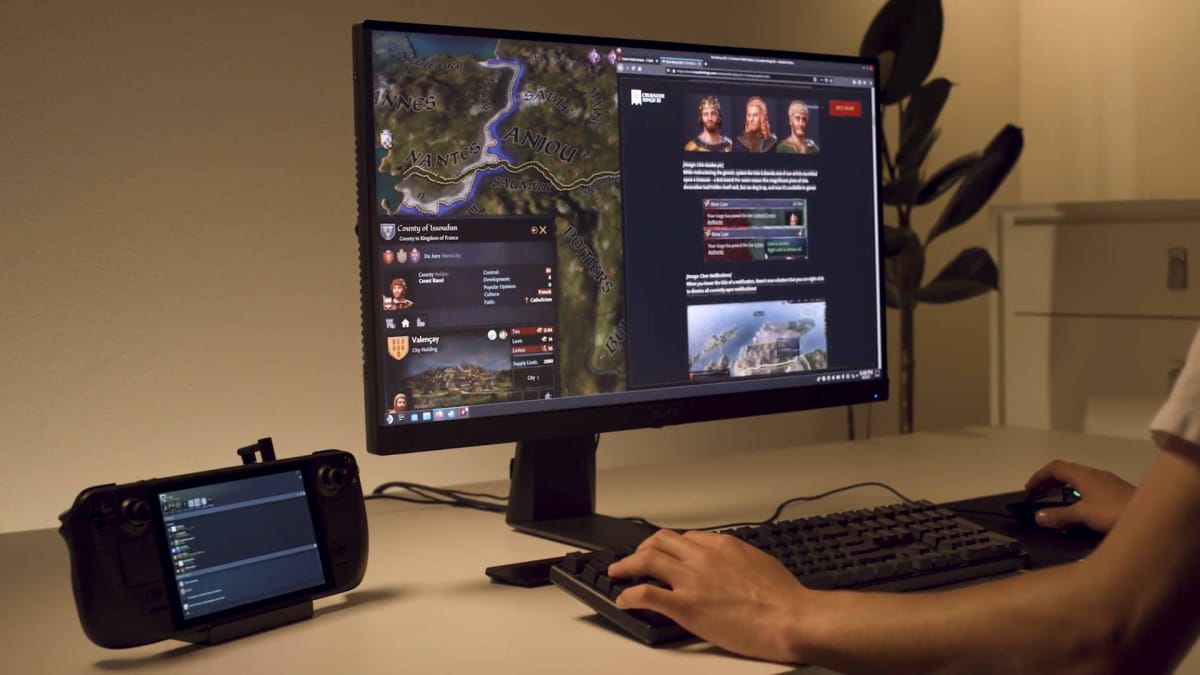Today's reveal of the Valve Steam Deck was certainly a surprise to many, but it looks like it might be more than a good handheld gaming PC — it may also be one of the best budget gaming PCs coming to the market.
The Steam Deck was revealed earlier today by Valve as a new handheld gaming PC that will start shipping in late 2021. It boasts some pretty impressive tech for its price, especially considering that Valve has had to fit everything into a small form factor.
What's really interesting, though, is the Steam Deck Dock. Much like the Nintendo Switch, the Steam Deck has a dock (albeit as an additional purchase) that would let you connect it to a television or monitor and connect some external peripherals. This means that the Steam Deck deserves serious consideration as a budget gaming PC.

Why the Steam Deck is a Good Budget Gaming PC
There are quite a few budget gaming PC builds out there and new ones are coming out every day. While many of these builds are cheap, the devil is in the details — you can end up spending much more than you might think.
Let's start with PC Part Picker, a website that is often used by computer enthusiasts to plan out their PC builds. A search of PC Part Picker's community builds priced between $399 and $649 (the price range of the Steam Deck) shows dozens of options at first glance. A more careful investigation of these builds, however, reveals that many of the components do not have a price listed.
The Steam Deck has one other advantage: you can unplug everything and play your Steam games on the go.
Similarly, custom computer retailer iBuyPower has a number of cheap gaming PCs on offer, but the cheapest available options start at $899 — that's $250 more than the best Steam Deck model. There's also a difference in specs between the Steam Deck and some of the budget gaming PCs available today. For example, many of these budget builds save a few bucks by using less RAM (typically 8GB versus the Steam Deck's 16GB).
Another consideration is the Steam Deck's controls and portability. Even if you could come close to matching the technical specs of the Steam Deck, you have to also consider the fact that you get a controller, gyroscopic support, haptics, a touch screen, and touchpads built in. Even adding a basic controller with fewer features is going to increase your price by $20–$80 or so, depending on the model you buy.
The Steam Deck won't work as a budget gaming PC right out of the box — you'll have to buy the Steam Deck Dock at an additional cost to get it to interface with your television or a monitor. That said, I think it's unlikely that this additional cost (plus the purchase of a controller or gaming peripherals) would make it noticeably more expensive than a comparable budget gaming PC. Even if it is close, the Steam Deck has one other advantage: you can unplug everything and play your Steam games on the go.

...And Why It's Not
So, is the Steam Deck the perfect budget gaming PC? The answer, in this case, is both yes and no. I've already explained the positives of buying Valve's handheld gaming PC compared to a traditional budget desktop build, but let's not gloss over the negatives.
Let's start with the issue of availability: Steam Deck reservations begin tomorrow. As we've seen with pretty much every major tech release over the last few months, this stuff sells out quickly. PS5 pre-orders were delayed in Europe and on Amazon, and Xbox Series X pre-orders had plenty of problems at retailers around the world, too. Valve itself has had trouble getting Valve Index VR headsets into the hands of customers earlier this year, so that also raises concerns about its ability to meet the demand for the Steam Deck.
A lesser (but nonetheless valid) concern is storage space. At best, the Steam Deck offers a 512 GB high-speed NVMe SSD (PCIe Gen 3 x4) for onboard storage in its priciest $649 model along with a UHS-I microSD slot supporting SD, SDXC, and SDHC microSD cards. As a point of comparison, I bought 5 TB of SSDs last year — after all, we're in an era where games can take up 100 GB or more of your storage space. (I'm looking at you, Call of Duty.)
If something on your Steam Deck should break, you're probably going to have to wait quite some time for someone to repair it.
The Steam Deck will be using a new version of Steam OS. That's great if you want to play any of the tens of thousands of games on Steam, but you might have a harder time getting Xbox Games Pass games, Battle.net games, or pretty much anything else that's not on Steam working on this handheld without some serious tinkering.
And finally, there's the biggest issue of all: expandability and repairability. If I want more RAM for my desktop PC, I can go out and buy some. If my graphics card blew up tomorrow (goodness forbid), I have quite a few equivalent replacements that I can have in hand within an hour or two at most. If you want to expand your Steam Deck storage, though, your only option is to use external storage such as a microSD card — and that's not going to get you the kind of speed you get from SSDs. And if something on your Steam Deck should break, you're probably going to have to wait quite some time for someone to repair it.
Despite these concerns, the Steam Deck could very well be a good budget gaming PC as long as you're conscious of the risks (and if you're lucky enough to get your hands on one). It's certainly not perfect, but the combination of its price point, Steam integration, and portability make it an attractive choice.
Have a tip, or want to point out something we missed? Leave a Comment or e-mail us at tips@techraptor.net












